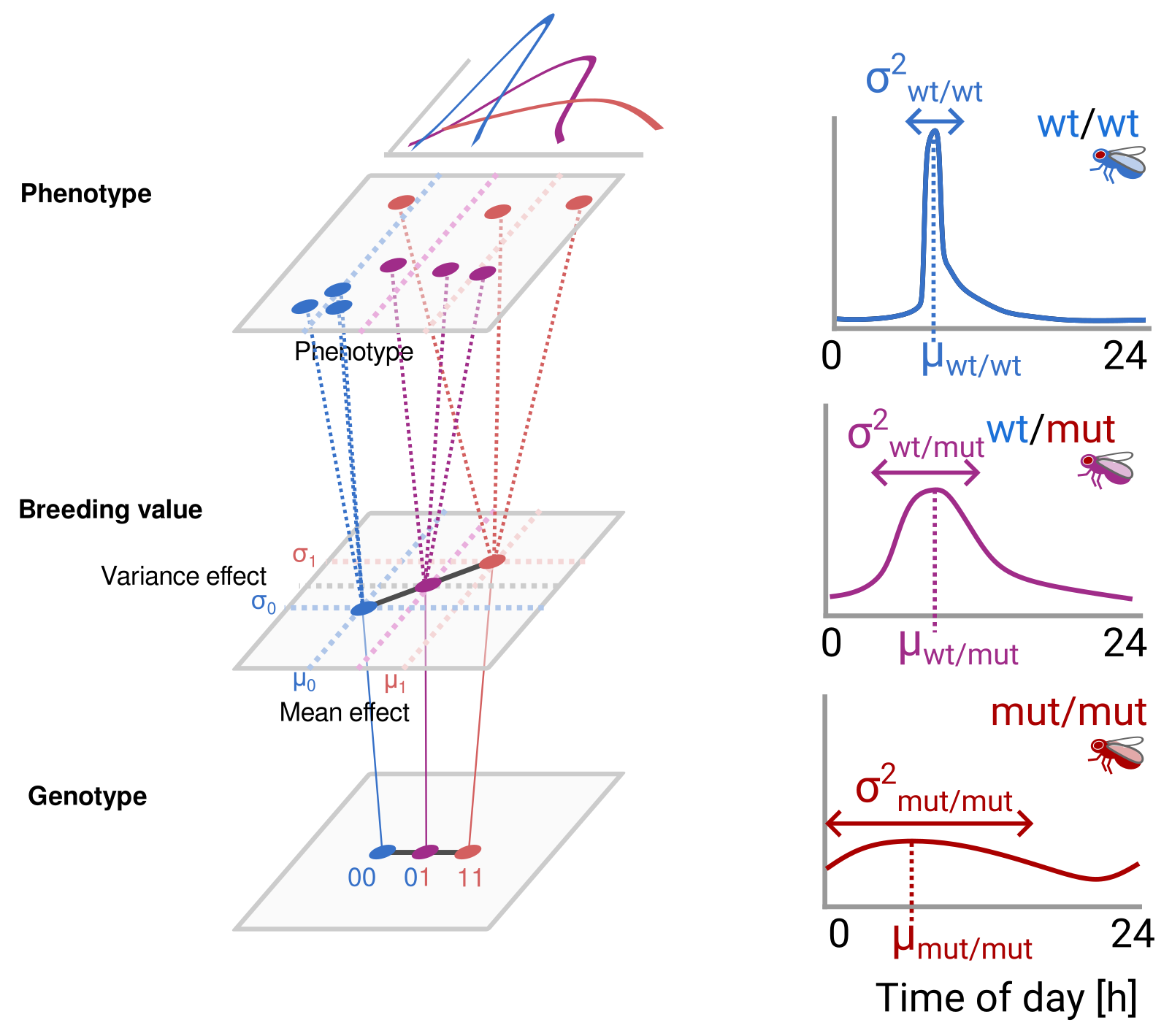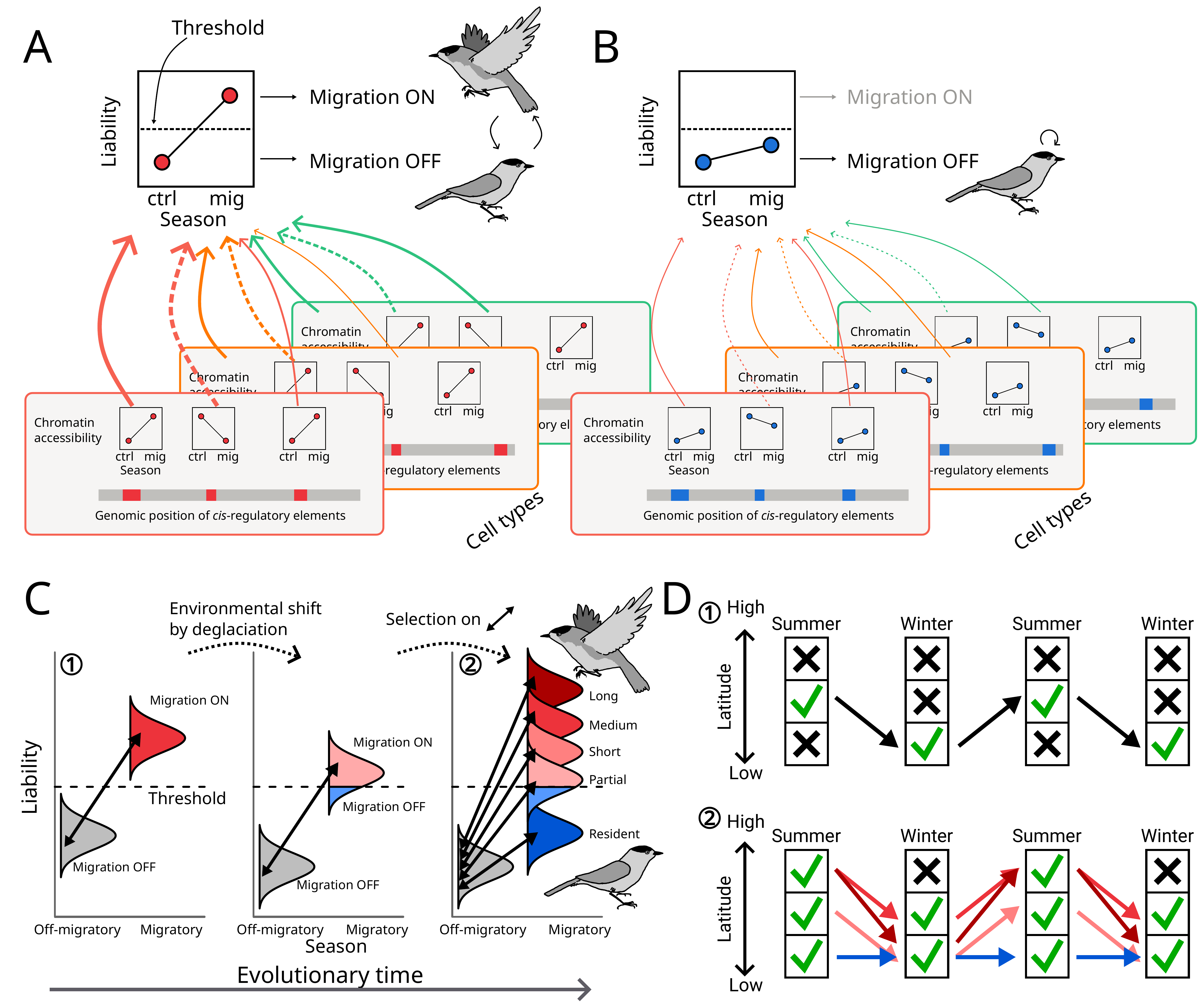Research interests
I am interested in understanding general principles for the genetic basis of evolution of complex traits. My heart lies with diversity of animal behaviour, and I want to address more than one of the Tinbergens’s four questions.
Population genetics of phenotypic noise

As traits of identical twins are not completely identical, phenotypes still vary within the same genotype under the same environment. This intra-genotypic variability, or phenotypic noise, arising from stochasticity in developmental programme and environmental response, plays important roles in robustness and biological innovation. In quantitative genetics and breeding, the size of phenotypic noise is known to be heritable, hence selection is predicted to act on phenotypic noise. Despite such predictions, we lack population genetic theory necessary for quantitative understanding of adaptive roles of noise-controlling mutations. Furthermore, there is no multicellular system to directly test theoretical predictions about population genetics of phenotypic noise, because empirical studies are largely limited at the level of gene expression noise in unicellular organisms, and the genetic mechanisms for phenotypic noise are largely unknown.
The aim of my postdoc project is to understand (1) what roles phenotypic noise plays in adaptive evolution of traits; and (2) how phenotypic noise itself evolves. I combine two complementary approaches: theoretical (stochastic simulation and numerical computation) and experimental (behavioural arrhythmicity in circadian mutants of Drosophila melanogaster as a model of high-noise phenotype with known mutational basis) approaches.
Mechanism and evolutionary history of behavioural divergence in seasonal migration

We have seen birds come and go seasonally for centuries. We see some birds only in certain time of the year, and other birds year around. Eurasian blackcaps Sylvia atricapilla exhibit a full suite of variation in migratory behaviour, from long-distance migration to residency, in a population-typical manner. To understand the evolutionary history underlying this behavioural diversity and the responsible change in molecular regulation, I combine population genomics and brain epigenetics.
Effects of recombination landscapes on population genetic variation

Genetic variation along the genome is informative of population history and selection. Recombination affects decay of correlated patterns of genetic variation along a chromosome, and its rate is heterogeneously distributed along the genome. Using extensive simulation, I address how recombination affects summary statistics that are often used to investigate selective processes, and how it impacts inference methods of population history.